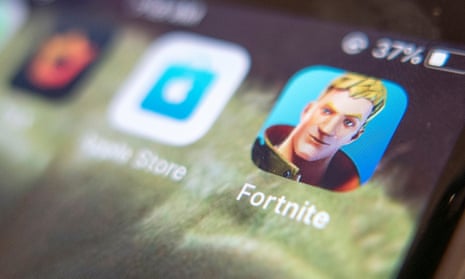Apple and Epic Games will go head to head in court in front of a US federal judge on Monday, the latest stage in the Fortnite maker’s campaign to break open the iPhone’s walled garden.
The feud has been growing since last August, when Epic set in motion a plan – known internally as “project liberty” – to try to get past the restrictions Apple places on software made for iPhones and iPads. Here is what brought the two companies to this point.
What is Epic’s problem with Apple?
The App Store is the only way to install software on iPhones and iPads, but companies have to play by Apple’s rules if they want to be included. Those rules are byzantine, controlling everything from adult content to security practices, but Epic’s main issue is with the rules controlling how it can charge customers for “V-bucks”, the in-game currency used to buy items in Fortnite.
Apple requires large companies to pay 30% of the money they receive for such sales of digital goods – since last December, smaller companies can apply for a discounted rate – a cut which Epic’s founder and chief executive, Tim Sweeney, had long complained was extortionate.
How did Epic kick off the fight?
Sweeney sent Apple a behind-the-scenes ultimatum: allow Epic to run its own App Store for iPhones, where it could take payments without a cut.
Apple rejected Epic’s terms, and on 13 August Epic unilaterally updated Fortnite to allow users to buy V-bucks direct, and offered a discount for those who did. Apple and Google, whose Google Play app store rules were also circumvented, retaliated within hours by removing the game. Epic took the fight public, reworking Apple’s famous 1984 commercial to pitch the company under Tim Cook as the new villain.
Does Epic have history with this sort of thing?
The showdown with Apple has echoes of past Epic campaigns, which have had mixed results. It successfully forced Sony’s hand in 2017 in a nearly identical playbook. Fortnite was updated to allow “cross play”, letting Microsoft Xbox and Nintendo Switch players compete directly, but Sony refused to allow PlayStation owners to join. That autumn, a brief software update – which Epic said was a mistake – enabled the feature for PlayStation owners, proving that it was possible and casting Sony as the sole holdout. The company panicked, fearing it could lose its reputation as the console platform “for the players”, its tagline at the time, and relented.
Another attempt to bypass controls was less successful. Epic launched the Epic Games Store on Android in 2018, using a technical feature of Google’s mobile platform to legitimately bypass the company’s control. The store ran for two years, but was eventually shuttered because, Epic said: “Google puts software downloadable outside of Google Play at a disadvantage, through technical and business measures such as scary, repetitive security pop-ups.”
What has Apple’s response been?
Apple has held fast. The company not only removed Fortnite from the App Store, as Epic expected, but initially tried to go further by threatening Epic’s ability to publish software for Macs too. That would have harmed another wing of Epic’s business, where the company makes the Unreal engine, a popular tool for developing 3D graphics for the gaming, film and design industries. The courts blocked that salvo after Microsoft joined in on Epic’s side.
Apple insists there is no room for negotiation, and that the rules the App Store runs on are there to ensure the safety and security of its users. Requirements to funnel payments through Apple protect users against financial scams, and a ban on installing alternative app stores prevents malware from running rampant on the platform.
Does Epic have any supporters?
A whole load. Shortly after the case was launched, a new body, the Coalition for App Fairness appeared, with members including Epic, Spotify and the Tinder owner Match Group. CAF is firmly aimed at Apple, and argues that the company’s 30% cut “represents an enormous portion of their revenue, in many cases an untenably large one”. The Guardian is a member of the News Media Association, itself a member of News Media Europe, which in turn is part of CAF.
Other CAF members have similar complaints about different parts of the App Store. makes gadgets which can track lost items, a market Apple entered in April. Tile argues Apple has an unfair advantage, because it allows its AirTags software capabilities that Tile was barred from using.
What is the legal case likely to turn on?
According to court filings, Epic will present Apple’s restrictions as the acts of a monopoly player that is extracting unfair payments from companies with no option but to accede. Apple will argue that the success of other mobile phone makers shows that it is not a monopolist, and that the small portion of Epic’s business that occurs on iOS – reportedly less than 10% of Fortnite’s revenues before it was pulled - further supports the idea that the two companies are equals.
Are there any surprises in store?
It is rare that battles between companies this big make it to open court, because the incentive to settle beforehand is so big. The list of executives lined up to testify includes Tim Cook and Tim Sweeney, Apple’s Eddy Cue and Craig Federighi, the former App Store boss Scott Forstall and witnesses from Facebook and Microsoft. Testimony under oath extracted by skilled lawyers could produce some uncomfortable disclosures from everyone.








